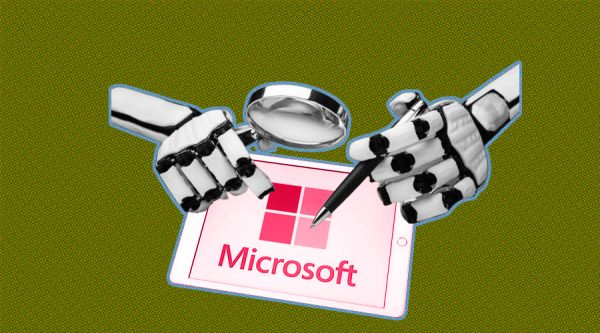Microsoft has informed EU antitrust investigators that Google has a competitive advantage in generative artificial intelligence because of its vast data set and AI-optimized hardware, highlighting the competition between the two tech titans.
Microsoft’s remarks were in response to a call for opinions on the degree of competition in generative AI that was issued by the European Commission in January.
Concerns over false information and fake news have been raised by the rising popularity of generative AI, which can produce human-like responses to written instructions and is demonstrated by Google’s chatbot Gemini and Microsoft-backed OpenAI’s ChatGPT.
The only vertically integrated business today is Google, which gives it strength and independence across all AI layers, from semiconductors to a booming mobile app store. In its report to the Commission, Microsoft stated that in order to develop and compete, everyone else had to rely on partnerships.
It claimed that Google would have a competitive advantage going forward due to its self-supply AI semiconductors and the enormous amounts of proprietary data it used to train its massive language model Gemini from YouTube and Google Search Index.
“With an estimated 14 billion videos hosted on the platform, YouTube offers an unmatched selection of video content. Microsoft stated that although other AI developers do not have access to such content, Google does.
It said that AI-driven voice assistants, like Apple’s Siri and Google’s Assistant, benefit both businesses.
“They are in a good position to advance into leadership roles in generative AI by utilizing and evolving their individual voice assistants. Google and Apple’s rivals and newcomers won’t have the same advantages, according to Microsoft.
Google retaliated against Microsoft.
A Google representative stated, “We hope the Commission’s study will shine a light on companies that are bringing that same approach to AI services and who don’t offer the openness of Google Cloud or have a long history of locking-in customers.”
Microsoft attempted to allay regulatory concerns regarding such collaborations between Big Tech and startups, and as a result, its more than $10 billion investment in OpenAI is currently under investigation by EU antitrust authorities.
“To enter and grow in the space, all of these start-ups relied on various forms of investments and partnerships,” the statement read.
It included three companies: Mistral in France, where Microsoft has spent 15 billion euros; Anthropic, which has investors including Google and Amazon; and Cohere in Canada, which has investors including Nvidia and Salesforce.
Microsoft stated, “One effective way to prevent companies from becoming vertically integrated in a way that would result in an anticompetitive advantage is to encourage pro-competitive partnerships in the AI space.”
Microsoft Highlights Google’s Advantage Over Competitors In The Generative AI Alphabet Unit
Editors Corner
Recommended News
Google: AI From All Perspectives
Alphabet subsidiary Google may have been slower than OpenAI to make its AI capabilities publicly available in the past, but...
US And UK Doctors Think Pfizer Is Setting The Standard For AI And Machine Learning In Drug Discovery
New research from Bryter, which involved over 200 doctors from the US and the UK, including neurologists, hematologists, and oncologists,...
An Agreement Is Signed By MEA, MeitY, And CSC To Offer E-Migration Services Via Shared Service Centers
Three government agencies joined forces to form a synergy in order to deliver eMigrate services through Common Services Centers (CSCs)...
PR Handbook For AI Startups: How To Avoid Traps And Succeed In A Crowded Field
The advent of artificial intelligence has significantly changed the landscape of entrepreneurship. The figures say it all. Global AI startups...
Related Posts

IndiaNext Brings you latest news on artificial intelligence, Healthcare & Energy sector from all top sources in India and across the world.
Recent Posts
© India Next. All Rights Reserved. | Privacy Policy
|
Web Design & Digital Marketing by Heeren Tanna








